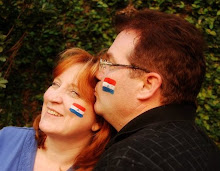
Here are some facts about the Ye'kwana tribe, also known as the Maquiritare .

*The Ye'kwana number about 7000.They predominantly live near the headwaters of the mighty Orinoco River. Others are scattered throughout the Amazon jungle in approximately 45 villages. Some are located as far south as Brazil and as far east as the Paragua River which is located in the Venezuelan state of Bolivar.

* The Ye'kwana boat paddles and most of their handcrafts are made using only a machete.

* The Ye'kwana Indians are best known for their excellent craftsmanship of dug out canoes, which can be as long as 14 meters!(45 feet) Their beautiful handwoven and stained baskets made from jungle vine are known all over the Americas.

* The New Testament and some of the Old Testament are available in their language, thanks to the hard work of New Tribe Missionaries.

* The Yadiwaru fork was used years ago for hand to hand combat. Then two points were designed to put out the eyes of the opponent.

* The small carved animal benches are used to sit on around their fires and children love to play on them.








8 comments:
Thanks again for another "lesson" and opportunity to learn a little about these people and your area of ministry.
How precious! Those little faces in the last photo just have my heart in a vice right now!
You mentioned a bench. Is there one in one of the photos? I must have missed it?
Can you describe to us where your home was in that photo of the village?
Thanks!
Who is the womand 2nd on Clint's right? She doesn't look Indian, and I can't tell but she doesn't look like anyone I know.
Kim: Her name is Stephany and next to her(with sun glasses on her head) is Lina. Lina is a Lebanese doctor and Stephany is a grown up MK from Brazil, a nurse. This was a medical trip to another village.
Are they becoming part of the Venezualan mainstream society, or do they keep to themselves? I know there are people who want them to remain living in the jungle as exotic forms of wildlife.
Harry; They prefer to live in the jungle, but they want to have the ability to get an education and self determination. They believe in being autonomous and inviting in those they chose. They want to keep their language and culture, but not be archaic. They also want to better their life and health, but not be controlled by others. Part of why they remain in the jungle , is they are often treated as "ignorant children" by the mainstream culture of Venezuela.
I sit here in amazement. I am so glad you shared this part of your life. How long have you been there? I think you mentioned before, but I'm not sure. I love your storied about the people. It really does make me stop and appreciate my life and the blessings I take so for granted each day. I feel like I should make a book of your writings just to read and remind myself to say, "Thank you Lord" more often.
Ginger: I have been here in Venezuela for 20 years. However we spent a little over 10 years with the tribe. On October 15,2005 all missionaries we told to leave the jungle by presidential decree. we are now in a city ministering. After our upcoming furlough, we will be relocating to Paraguay.
Post a Comment